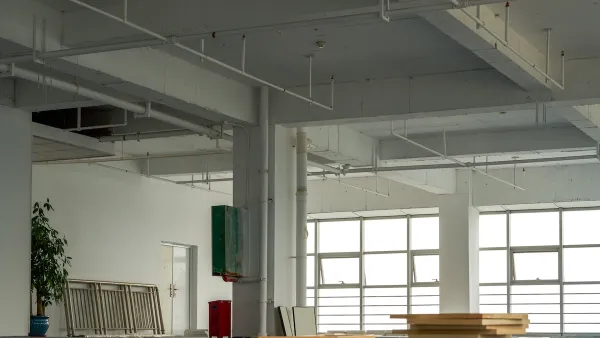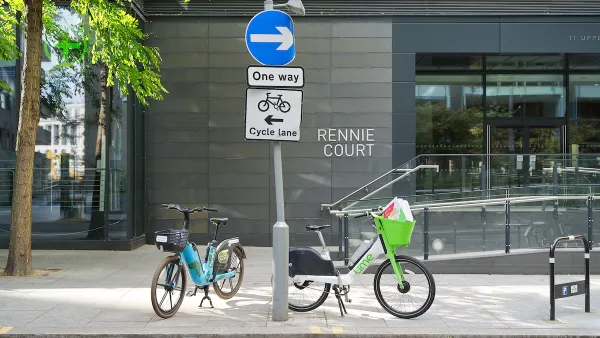As a property buying binge by the global super-rich makes parts of London "more international, more expensive and more empty," the government is looking to ease the conversion of offices to residences. Can this ease the city's housing shortage?
London is suffering from a chronic housing shortage that is driving up prices, and driving out seemingly everyone but the affluent from large areas of the English capital. Ruth Bloomfield examines one potential solution being considered: a controversial initiative by the British government to ease the conversion of office spaces to residential uses by skirting the usual approvals process.
"At present," says Bloomfield, "this legal loophole can take many months to jump through. Not only is time a factor but in the British planning system, each case is dealt with on its own merits. Local councils can—and regularly do—deny permission on the grounds that they do not support the loss of office space or feel the location is suitable for housing."
"Not everyone is thrilled by the looser regulations," she adds. "London's mayor, Boris Johnson, wants central swaths of the capital, including the financial district (known as the City or the Square Mile), the South Bank and the West End, completely exempted from the new rules, and has lodged an official complaint with the government."
Furthermore, as the mayor argues, this initiative may only exacerbate the lack of affordable housing in central London. As Sarah Lyall explains in an article in The New York Times, the increasing exclusivity of London's prime areas is creating virtual ghost towns as international buyers snap up trophy properties that they rarely inhabit.
"Paul Dimoldenberg, leader of the Labour opposition in Westminster Council, said the situation had reached a 'tipping point' and was starting to concern lawmakers."
“Some of the richest people in the world are buying property here as an investment,” he said. “They may live here for a fortnight in the summer, but for the rest of the year they’re contributing nothing to the local economy. The specter of new buildings where there are no lights on is a real problem.”
FULL STORY: Londoners Who Live at the Office

Analysis: Cybertruck Fatality Rate Far Exceeds That of Ford Pinto
The Tesla Cybertruck was recalled seven times last year.

National Parks Layoffs Will Cause Communities to Lose Billions
Thousands of essential park workers were laid off this week, just before the busy spring break season.

Retro-silient?: America’s First “Eco-burb,” The Woodlands Turns 50
A master-planned community north of Houston offers lessons on green infrastructure and resilient design, but falls short of its founder’s lofty affordability and walkability goals.

Test News Post 1
This is a summary

Analysis: Cybertruck Fatality Rate Far Exceeds That of Ford Pinto
The Tesla Cybertruck was recalled seven times last year.

Test News Headline 46
Test for the image on the front page.
Urban Design for Planners 1: Software Tools
This six-course series explores essential urban design concepts using open source software and equips planners with the tools they need to participate fully in the urban design process.
Planning for Universal Design
Learn the tools for implementing Universal Design in planning regulations.
EMC Planning Group, Inc.
Planetizen
Planetizen
Mpact (formerly Rail~Volution)
Great Falls Development Authority, Inc.
HUDs Office of Policy Development and Research
NYU Wagner Graduate School of Public Service




























